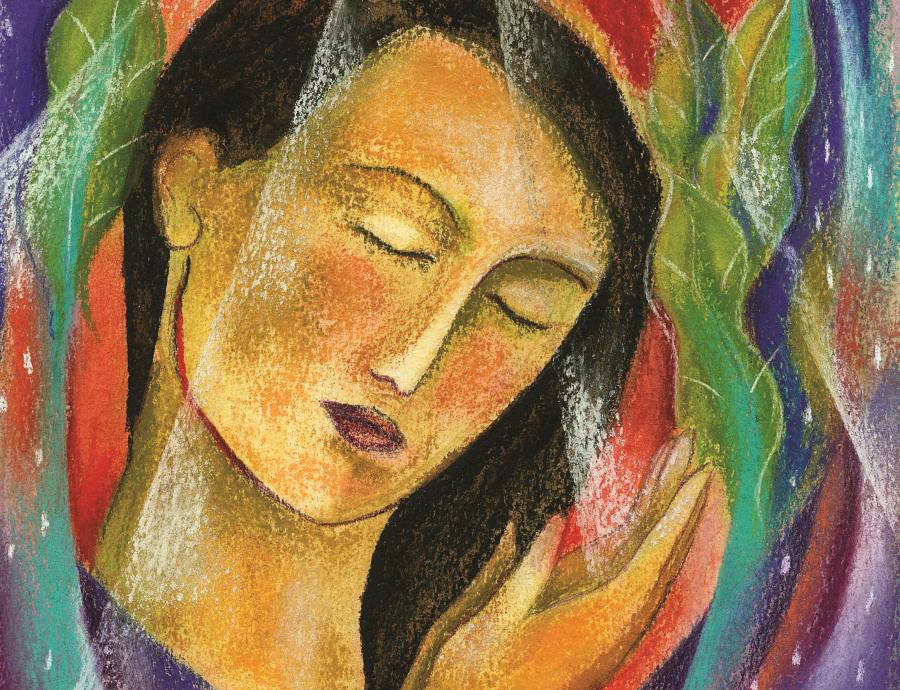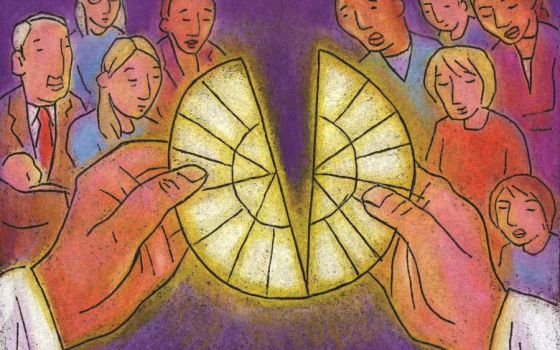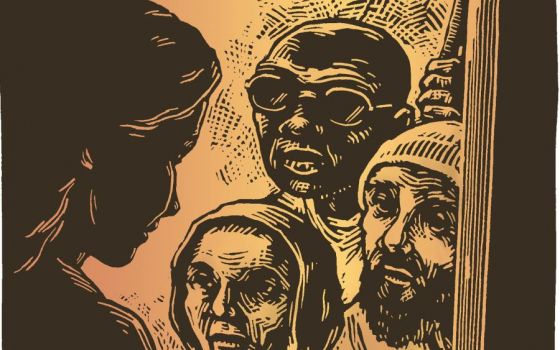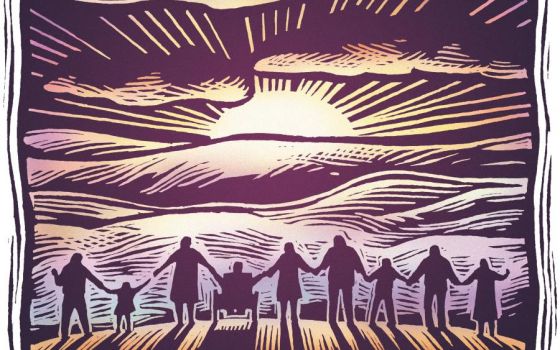
(Julie Lonneman)
Perhaps there is no prayer uttered more often by Christians than the Our Father. And there is good reason for this frequency, because Jesus himself taught it to his disciples when they asked him how they were to pray (see Matthew 6:9-13 and Luke 11:2-4).
From the early days of the church, the Lord's Prayer has occupied a special place in the life of Christians. The second-century Didache, one of the earliest Christian documents outside the New Testament, commanded that the Our Father should be said by Christians three times a day, an imitation of the Jewish practice of reciting the Shema Israel three times daily.
By the fourth century, the Our Father was included before Communion in the liturgies of both East and West. In the baptismal documents of the fourth and fifth centuries we find that the both the creed and the Lord's Prayer were formally presented to catechumens near the end of their formation, not only because these two texts are foundational prayers of the community, but also to prepare them directly for their baptism and first sharing in Communion.
The prayer that Jesus taught his disciples has deep connections to the eucharistic celebration, and still today finds a natural place in the rites not only of Catholics but of nearly all Christian churches. An entire book could be devoted to the significance of the Lord's Prayer at Mass, but here are some key dimensions of its importance:
- It's our prayer. The Lord's Prayer, like the eucharistic liturgy itself, is fundamentally communal, the prayer of brothers and sisters of Jesus, people of common origin who dare to address God as "Abba."
- It looks forward to the "supper of the Lamb." The Eucharist is itself a foretaste of the eternal banquet that awaits us in the coming reign of God. The Lord's Prayer is strongly oriented to the fulfillment of all things and the coming of God's reign as we pray, "Your kingdom come" and "Save us from the time of trial."
- We pray for "daily bread." From early times, Christians connected this petition of the Lord's Prayer not only to ordinary sustenance but to the eucharistic feast. In our prayer for daily bread, we express our utter dependence on God.
- We seek and offer forgiveness. In the Eucharist we remember the Paschal Mystery of Christ, by which he has brought about reconciliation. As we prepare to approach the holy table, we express our need for forgiveness and pledge ourselves to share in the work of reconciliation.
Because the Lord's Prayer is so familiar, it is easily sung by all, especially when the music is also accessible. The 2011 edition of The Roman Missal for the United States retained the setting by Robert J. Snow that has been widely sung in this country since the introduction of vernacular liturgy in 1964 and which many, if not most, English-speaking American Catholics can sing by heart. Other musical settings may be used as well, of course.
Advertisement
Singing helps assemblies to pray the words without rushing through them and underlines the communal nature of the prayer in the unity of voices joining in a simple melody.
During the Mass, the biblical text of the Lord's Prayer continues with a prayer of the priest, called the embolism, and concludes with a doxology ("For the kingdom, the power, and the glory are yours ...") sung by the entire assembly. Priests can find a helpful recording of the embolism at www.npm.org.
Even if the priest does not sing the embolism, however, the assembly should sing the doxology when the Lord's Prayer itself has been sung in order to maintain the unity of the prayer.
At events such as weddings and funerals, where there are likely to be many ecumenical visitors, it might be helpful to recite rather than sing the Our Father so that all Christians present may join easily in this prayer we all hold in common.
On these occasions, as at every celebration of the Eucharist, we pray for and eagerly anticipate that day when all will be one at the wedding banquet of God's reign.
Editor's note: This reflection was originally published in the May 2014 issue of Celebration. Sign up to receive daily Easter reflections.








